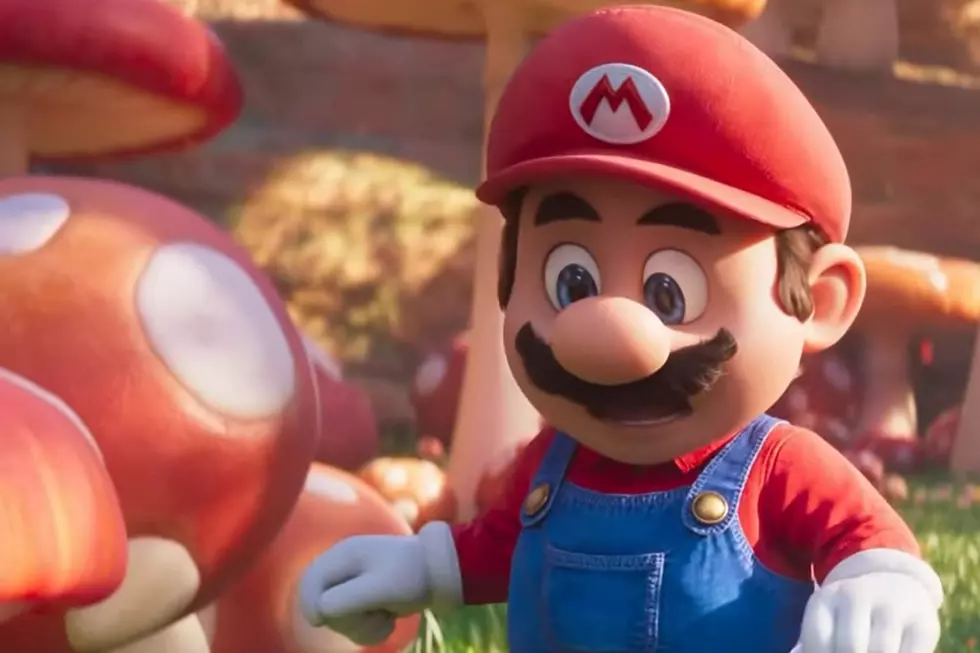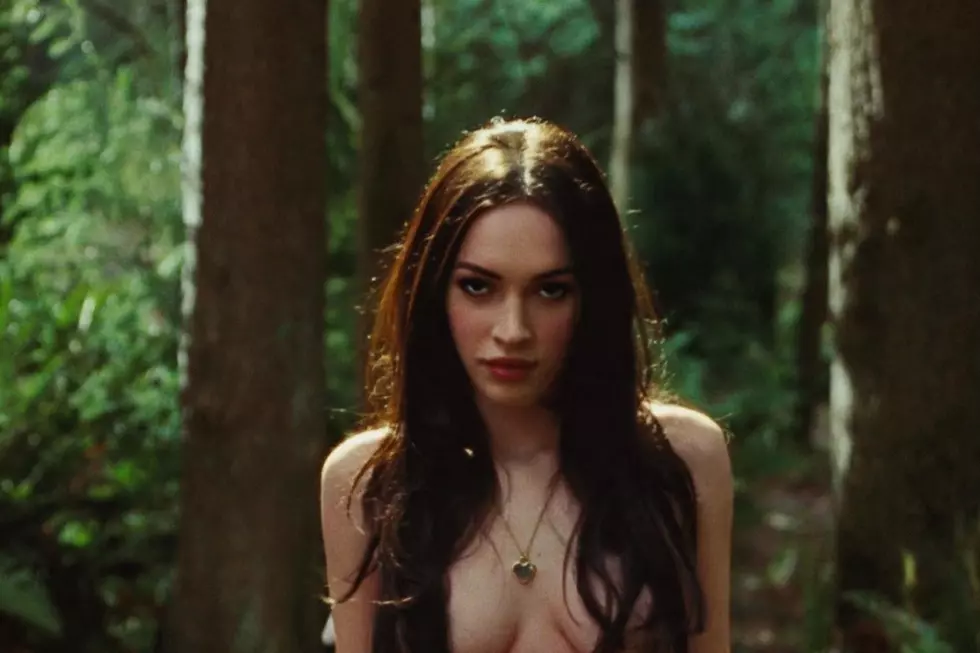
‘Jurassic Park’ Would Be So Much Better If It Never Got Any Sequels
Jurassic Park turned 25 years old last week, and testimonials and tributes began been popping up all over the internet. How the film was a nerd haven. How it was a game changer. How it made history. How it was a “dinosaur-sized leap” in computer effects. How it was just a damn good movie.
The celebration will continue this week with the release of Jurassic World: Fallen Kingdom, the fifth Jurassic Park film and the second in the Jurassic World series. The film will likely be a huge box-office hit, adding hundreds of millions of dollars to the $4 billion the Jurassic franchise has already earned in worldwide ticket sales. That doesn’t change the fact that Fallen Kingdom is pretty crummy — or that every Jurassic Park sequel has been varying degrees of pretty crummy (if not straight-up awful). While I share every single sentiment above that Jurassic Park is a classic, I can’t help but feel those 25th anniversary essays would have been even more effusive if Jurassic Park had remained a film and never become a franchise. All the sequels have done is diminish its legacy.
If there is a way to make a plausible follow-up to Jurassic Park, no one’s found it yet. The original movie’s premise — scientists journey to an experimental theme park filled with real dinosaurs to test its safety, deem it decidedly unsafe, and run for their lives — is arguably impossible to repeat, at least in a way that holds up to any kind of scrutiny. Once people have been to a place full of dinosaurs, and the dinosaurs have run amok and eaten a bunch of people, and then you’re writing new movies where people willingly go back to Death Trap Island Isla Nublar, you’re not crafting stories — you’re just generating excuses to sell more tickets.
There is a key scene in Jurassic Park that makes the whole thing work. It is simple, brief, and easy to miss. It’s also essential — and missing from all four sequels. It’s the moment John Hammond (Richard Attenborough) comes to Alan Grant (Sam Neill) and Ellie Sattler (Laura Dern) and asks them to come with him to Jurassic Park. It’s not so much what Hammond says as what he doesn’t say. See if you can spot the crucial information he leaves out:
Hammond never explicitly mentions dinosaurs in that scene. He never says “Hey, come to my remote island off of the coast of Costa Rica. I’ve made ferocious death beasts from before the dawn of time. Spared no expense!” Hammond only calls the place a “biological preserve” with exciting attractions that are “right up [their] alley.”
So when Grant and Sattler agree to go to Jurassic Park, they don’t know it contains living dinosaurs. They only learn that when they see them with their eyes for the first time. As far as they’re concerned, they’re just signing up for an all-expenses-paid vacation. It’s possible that if Hammond had told Grant and Sattler the whole truth right from the beginning, they never would have gone, even after he offered them a huge sum of money to fund their archaeological efforts.
Once they arrive on Isla Nublar, Grant and Sattler are briefly dazzled by Hammond’s achievements, but they quickly realize the danger of what he’s done. They warn him about creating raptors, and even populating his visitors center with poisonous plants simply because they look pretty. In the end, Grant tells Hammond he’s decided not to endorse his park. (“So have I,” Hammond replies as they make a hasty getaway.)
After all of that, there is no reasonable excuse why Grant would ever return to Jurassic Park. And yet the premise of Jurassic Park III is “Alan Grant returns to Jurassic Park.” In that film, he’s convinced to join a sightseeing tour around the island funded by a wealthy couple, Paul and Amanda Kirby (William H. Macy and Tea Leoni). They claim to be rich thrillseekers flush with profits from their family business, Kirby Enterprises. All they supposedly want is for him to fly with them on a plane over the island so they can enjoy the wildlife from a distance.
I guess if you don’t look any further than that, and if the Kirbys had been on the level, you could possibly buy Grant accepting their deal, especially since he’s rapidly running out of money for his research. But the Kirbys are instantly revealed to be liars; their son has gone missing and they’re mounting an extremely ill-advised rescue operation. It instantly goes horribly.
These parents are desperate, so it’s not hard to believe they might do something reckless and foolish. But why would Alan Grant take them at their word, especially when their word meant going back to the deadliest spot on the planet? If he had taken two minutes to Ask Jeeves (this was 2001), he could have figured out there was no such thing as Kirby Enterprises, and that the Kirbys themselves were full of crap.
Then Grant’s partner and research assistant Billy Brennan (Alessandro Nivola) attempts to out-stupid him by stealing a raptor egg in the hopes of bringing it back to civilization and selling it to the highest bidder. (SPOILER ALERT: Dinosaurs don’t like it when humans steal their eggs.) This note from the IMDb Jurassic Park III trivia page pretty much says it all: “Michael Crichton worked with the screenwriters several days to brainstorm about a story, but left after some days when he could not come up with a satisfactory idea.”
Of course, Crichton had no problem playing a part in the creation of The Lost World: Jurassic Park; he wrote the Jurassic sequel novel it’s loosely based on. In that film, Jeff Goldblum’s mathematician Ian Malcolm, who barely escaped the first Jurassic Park with his life, reluctantly heads to a previously undisclosed second dinosaur island because his girlfriend is already there. (I guess he would prefer to die with her in the near future, instead of alone at some indeterminate point down the line.) Then Malcolm’s daughter tries to out-stupid him by stowing away on the trip. Meanwhile, Jurassic Park’s parent company makes secret plans to ship the Isla Sorna dinosaurs to San Diego. The first theme park worked so well on an island in the middle of nowhere, so why not try it again in a heavily populated area? Cut to:
The Jurassic World franchise is no better. In those films, a fully functioning Jurassic World theme park has somehow sprouted on the same island where the original Jurassic Park cratered before it ever opened. (And where, last we saw, there were dinosaurs roaming around, which must have made the Jurassic World construction process super fun.) Supposedly the new park has operated without incident for a number of years, but a confluence of factors conspire to cause another meltdown. Mad scientists create a super dinosaur with a gigantic brain and the ability to camouflage itself. An InGen employee suggests the solution is to let raptors loose to contain the super dinosaur, a plan that backfires spectacularly. Later, another character releases a T-Rex hoping it will stop the super dinosaur, because in Jurassic Park movies releasing dinosaurs is the cause of and solution to all of life’s problems. The only “smart” character in Jurassic World is a guy who trains raptors to act like dogs.
In Fallen Kingdom, that character, Chris Pratt’s Owen Grady, falls for the same scheme Grant fell for in Jurassic Park III: A bunch of rich people convince him (along with Jurassic World’s former director, played by Bryce Dallas Howard) to return to the park for a rescue mission. In a huge shocker, the rich people do not have altruistic motives and the rescue fails spectacularly. But I guess when you gladly travel to an island full of dinosaurs that also contains a volcano that is in the process of an “extinction-level” eruption you deserve whatever happens next.
If these movies were about illiterate morons, maybe their decisions wouldn’t feel so out of place. But the characters in Jurassic Park are theoretically a collection of the smartest people on the planet. They’re scientists, archaeologists, mathematicians, elite game hunters, and the heads of multibillion dollar corporations. And yet the history of the Jurassic Park sequels is the history of idiots doing exactly the worst thing in every situation. The only way to really enjoy these movies at a certain point is to start rooting for the dinosaurs. At least their choices make sense.
John Hammond wanted to make something extraordinary. He failed, but his goals were noble. All of the characters who have fought over Jurassic Park’s remains have basically just tried to exploit his research for money. That’s kind of what’s happened to the Jurassic Park franchise in the last 25 years. They have cheap scares, but none of the genuine awe or intelligence of Steven Spielberg’s first film. To put it another way: The original Jurassic Park is a movie about a theme park. The sequels are roller coasters. 25 years from now, people will still write glowing appreciations of the original film. They will not mention the sequels. Or if they do, they will wonder why everyone in them is so excited about going to a place that will almost certainly kill them.
More From WDKS-FM










